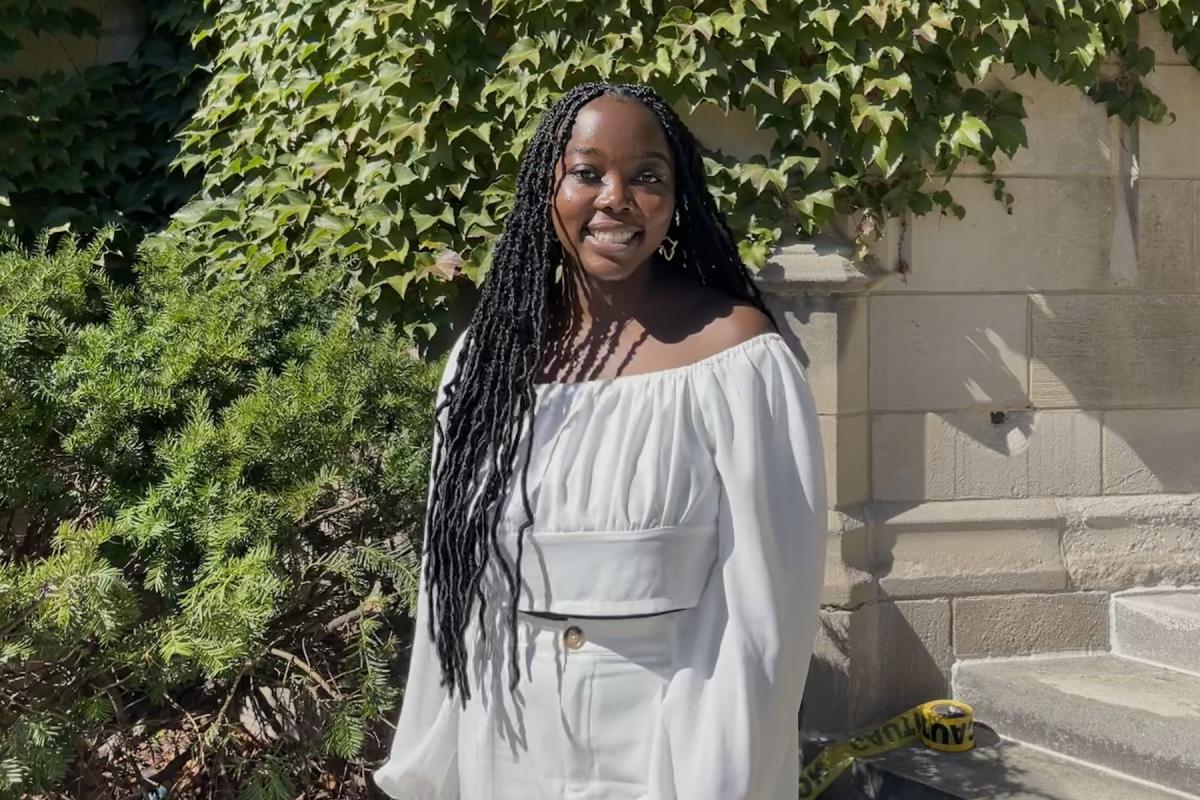Human rights major Promise Ngirwe spent the summer learning what it takes to fight for human rights on the ground under difficult circumstances.
As an intern with Physicians for Human Rights (PHR), supporting their Program on Sexual Violence in Conflict Zones, Ngirwe got an up-close look at the logistical work that goes into documenting rights violations and protecting survivors.
She regularly helped to update security protocols for PHR staff traveling to conflict zones, working to ensure the safety of rights workers in places like the Democratic Republic of Congo (DRC), Kenya, Rwanda, and Ukraine.
It’s a subject where, the more you learn about it, the more overwhelmed you can feel. But it was inspiring to learn about all the work that’s being done, the interventions that are being developed, the people who are devoting their days to fighting for progress. Even if it can seem incremental and slow, the work is happening, and it was meaningful for me to see that and be a part of it.
She also helped update a fact sheet for the PHR website about ViVoMo, a portable, battery-powered voice modification system that rights workers can use to protect victims and witnesses of sexual violence by making it possible for them to give testimony without being identified by their voices.
Inspired by the Work
Ngirwe’s parents were born and raised in the DRC, so she was already familiar with the problem of sexual violence in conflict zones. She’d also explored the topic in her human rights classes.
“It’s a subject where, the more you learn about it, the more overwhelmed you can feel,” Ngirwe says. “Often it seems like things are getting worse. I’ve felt helpless. But it was inspiring to learn about all the work that’s being done, the interventions that are being developed, the people who are devoting their days to fighting for progress. Even if it can seem incremental and slow, the work is happening, and it was meaningful for me to see that and be a part of it.”
Connecting Human Rights to Medical Career
Thanks to her parents’ experience of fleeing their home country, Ngirwe was always interested in questions of rights. “Whose obligation is it to protect rights? Who decides? These are the questions that drew me to the human rights major,” she says.
For her major capstone project, she is producing a podcast series about refugee families who, like her own, resettled in rural, predominantly white towns in wealthier countries.
After graduating, Ngirwe plans to attend medical school and become a doctor. Interning at Physicians for Human Rights, she says, was the perfect intersection of her interest in medicine and human rights. And her human rights coursework has given her a lens to think about her future career. “If there’s a right to health, then how does my work as a medical professional intersect with that?”
- Learn more about Pozen Center internships, which provide $5,000 grants for human rights work in the field.
- Read stories about human rights interns uncovering key evidence for a prison lawsuit, helping to develop Cook County's human rights ordinance, and empowering Chicago's Hispanic communities.
- Learn about becoming a human rights major or minor.

